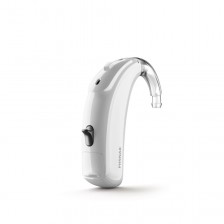What does an Otolaryngologist do?


Otolaryngologists are professionals dedicated to the treatment, both medical and surgical, of diseases and disorders of the ear, nose, throat and related structures of the head and neck.
Otolaryngology is a powerful medical specialty that focuses on health problems related to the throat, nose, head, and neck.
How do I become an Otolaryngologist?
Otolaryngologists, before gaining access to training as specialists, must undertake a medical career in Spain that lasts between 6-7 years. Once the medical graduate graduates, he or she must take the MIR exam, which will determine the places available in each hospital for each specialty so that those taking the exam can choose in order according to their final qualification. Once a place is available, for 4 years the doctor will be trained as a resident in the assigned hospital. The higher the grade obtained in the MIR exam, the greater the possibility of choosing the desired specialty in the hospital of preference of the student.
What kind of procedures does an Otorhinolaryngologist perform?
The otolaryngologist is in charge of diseases that affect the ear (tinnitus, hearing loss, otitis, vertigo and paralysis), as well as all those that can be located in other areas (nose, throat and neck), some of them directly related to hearing.
In the first place, the otolaryngologist will begin by checking the patient and depending on the results, rehabilitation and pharmacological treatments will be chosen in order to exhaust all possibilities of recovery before having to perform surgery. If it is not possible to heal the patient in this first phase, the patient moves on to surgical techniques.
Ear
- Hyperacusis produces partial deafness, the loudest sounds are perceived than they really are.
- Otitis: is an infection of the outer and/or middle ear that connects with the inner ear. Usually caused by mucus in the tympanic box due to a malfunction of the Eustachian tube. They can also be viral or bacteriological.
- Mèniere's disease: it is produced when the liquid of the labyrinths, situated in the inner ear has a high pressure. The endolymphatic fluid, together with the labyrinths help the body to maintain balance.
- Bilateral hearing loss (commonly called deafness) occurs when hearing is lost by both ears to the same degree. The most common treatment is to diagnose hearing aids or surgery.
Nose
- Allergic rhinitis: allergies that cause the nose and sinuses to become inflamed. A symptom may be a runny nose.
- Fractures
- Nosebleeds: occur for a variety of reasons, usually occurring in infancy.
- Deviated nasal septum: when the wall dividing the nasal cavity is deviated.
- Nasal polyps are soft masses that develop in the sinuses or nasal mucosa.
Throat and Neck
- Cancerous and noncancerous tumors of the head and neck, including the upper aerodigestive tract and salivary glands.
- Nodules in the neck, cancer of the larynx, tumors of the parotid, cancer of the mouth and pharynx, nasal and sinus tumors, lesions of the base of the skull.
- Swallowing and voice problems. Sore throat, pharyngeal manifestations of gastroesophageal reflux.





























